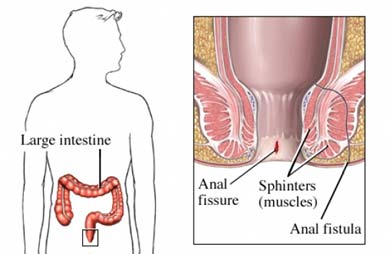Welcome to Piles and Hernia Center
Get back to doing what you love. We have more experience, more treatment options and better results for your Piles and hernia care. Call 04 379 8747 to set up an appointment today!
Get back to doing what you love. We have more experience, more treatment options and better results for your Piles and hernia care. Call 04 379 8747 to set up an appointment today!
For patients seeking anal fissure treatment in Dubai, Dr. Murtaza Pithawala is a board-certified surgeon in Dubai with comprehensive experience in the correction of anal fissures. Because colorectal issues tend to be sensitive, Dr. Murtaza’s first priority is making his patients comfortable. His office is private and inviting, allowing patients to have peace of mind while receiving premier colorectal treatment. With a reputation for providing among the best anal fissure treatment Dubai has to offer, Dr. Murtaza may be the perfect fit for your upcoming treatment.
An anal fissure is a cut or tear in the lining of the anus. The anus is the opening through which stool leaves the body. Tears generally occur just inside the opening.

In most cases, tearing is the result of trauma to the anal lining. Trauma can be caused by:
Factors that may increase your chances an anal fissure:
An anal fissure may cause:
Apprehension about bowel movement pain may cause you to delay bowel movements. This can make the symptom worse.
The doctor will ask about your symptoms and medical history. A physical exam will be done. Anal fissures are generally visible, so diagnosis can be made with an anal exam. If it is not visible, but suspected, your doctor may need to do other tests as long as it is not too painful. These tests include:
Fissures usually occur in predictable locations around the anus. If there are multiple cuts, or a cut in an unusual location, the doctor may order additional tests to look for other conditions.
Treatment aims to heal the cut and prevent future anal problems. Most early fissures heal on their own or with self-care. Fissures that are fairly new are easier to heal than ones that have persisted for longer than 2 months.
Treatments include:
Fissures may heal by changing some of your daily habits. These include:
Your doctor may prescribe:
Surgery may be necessary for:
Surgical procedures include: